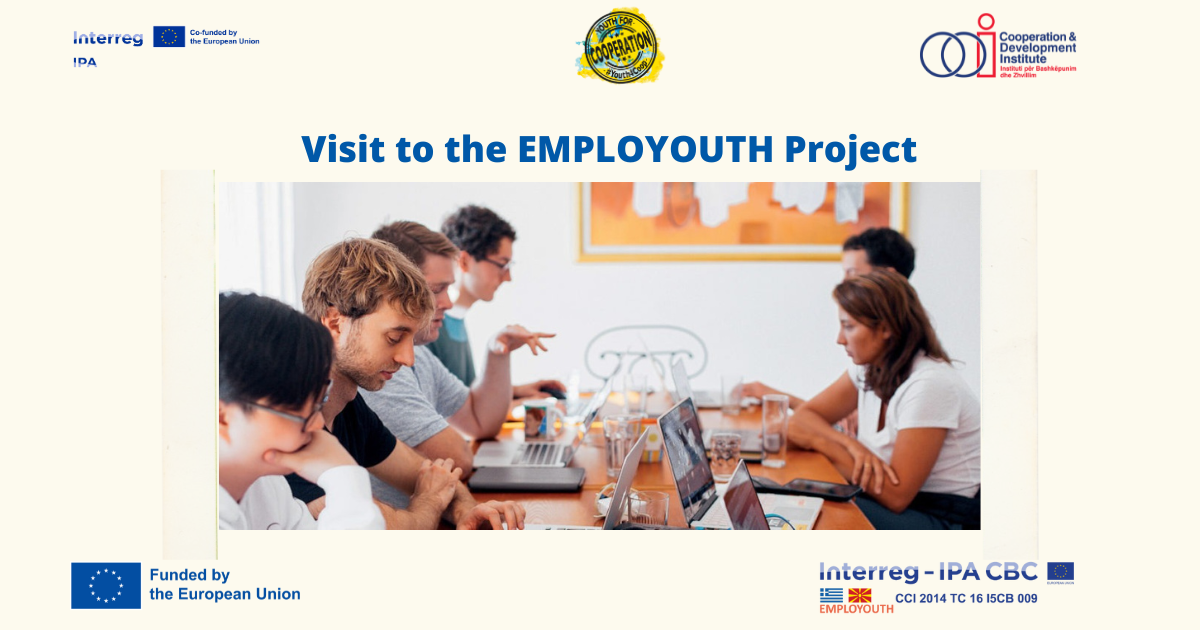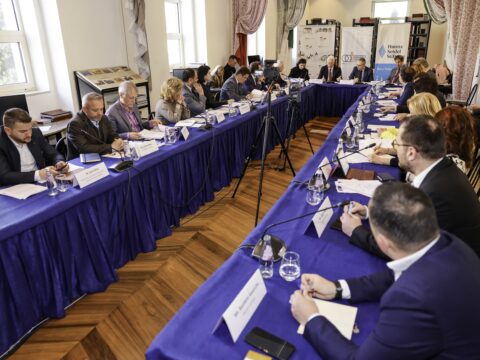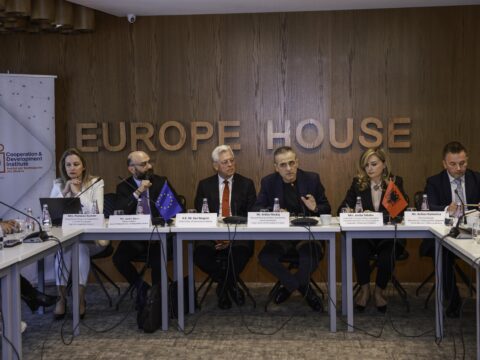Mar 30, 2023
According to Eurostat, the total youth population in the SEE6 is around 3,6 million, which makes up approximately 21 % of the total population. With youth being the backbone of every nation and its most vivid part, it’s a big responsibility for every country to make policies that encourage their engagement not only in decision-making about youth-related issues but also in matters that affect every aspect of society. Needless to say, higher education plays a significant role when it comes to their intellectual formation and empowerment.
Despite the fact that the education systems in the SEE6 still reveal shortcomings as regards catering for all students and equipping young graduates with relevant skills, progress is being made. Simultaneously our society has undergone an enormous transformation as for the way youth needs are being addressed.
We have come to realize how critical it is for students to be prepared through the acquisition of not just content knowledge, but also the skills and mindset they need to work collaboratively, solve problems they care about, and handle upheaval. Nowadays both scholars and policymakers are becoming aware of the importance of entrepreneurship education and its role in fostering entrepreneurial behavior and mindset for the economic development of a country.
2023, being the European Year of Skills has further boosted the work towards job market inclusion and increased capacities in soft & digital skills of youth in order to facilitate their transition towards employment or self-employment. It has further put spotlight into many ongoing development initiatives across our region, with Interreg IPA CBC programs being one of them, especially when it comes to uplifting youth and involving youth in programmes related to socio-economic development of the region.
On 7 March, the Cooperation and Development Institute (CDI) stopped in Bitola to discuss opportunities for education institutions and local communities within INTERREG programmes and how such programmes can make a difference for young people in North Macedonia.
This seminar is part of CDI’s partnership with DG Regio to raise awareness on Youth Manifesto, as a means of including youth needs and youth as contributors in IPA related structures and EUSAIR governing structures. The event brought together different stakeholders such as the Joint Secretariat Antenna in Bitola from INTERREG IPA CBC Programme Greece – North Macedonia, INTERACT, IPA ADRION Programme, University of St. Kliment Ohridski and the Economic Chamber of North Macedonia.
EMPLOYOUTH funded by the Interreg IPA CBC Programme ‘Greece – Republic of North Macedonia’ supported the implementation of a comprehensive package of actions oriented towards the employment of young graduates, and the emergence of prospects based on competitiveness, productivity and innovation.
During the seminar, we heard first-hand from Prof. Blagoj Ristevski, Dean of the Faculty of Information & Communication Technology (ICT) on the role that Interreg IPA Programmes can play when it comes to offering specialized programs and calls for young people, young entrepreneurship and innovation in cross border areas.
Prof. Blagoj Ristevski says that the main achievements of the EMPLOYOUTH project consist in: creation of a dynamic entrepreneurship culture, encouraging young entrepreneurship in Greece and North Macedonia, supporting innovative ideas and boosting business-oriented skills, networking opportunities between young entrepreneurs and business professionals, etc. In the framework of this project the building of ICT Faculty in Bitola, was reconstructed. In addition, an IT HUB of 800 m2 was co-founded and built as a place where students and young people will meet with the IT industry and work on joint real projects that provide students with practical training.
Turning the focus toward youth perspectives remains the main objective of the work carried out by CDI and its youth-led platform Connecting Youth. While exploring EMPLOYOUTH and its achievements, we had the chance to hear from young participants of the project as well. Mr. Dimitar Mitrevski, student-beneficiary of the EMPLOYOUTH, when asked how the project supported his idea, replied: ‘EMPLOYOUTH supported our ideas by providing mentorship, networking opportunities with other entrepreneurs, opportunities to learn more about startup ecosystem, how we can plan, strategize and test the idea in front of audiences, how to pitch the idea in front of potential investors etc. This was my first experience, which helped me a lot. From there I continued to apply in other programmes and connect with people. It helped us to accelerate our idea forward’. He also emphasized that involving young people in such programs helps them to grow professionally and personally.
On a peer-to-peer level, he closed his statement with a word of encouragement for young people: ‘I would recommend all the young people just to do it (participate in such programs), go for it. U will not have any downfalls; you only have the benefits to learn something new. Improve yourself! By improving yourself you will help the society as well. It starts from you, not from the others!’
It is worth emphasizing that “St Kliment Ohridski” university has successfully interleaved the opportunities that the EU creates for youth and education institutions, hence contributing and giving life to the recommendations that came out of Youth Manifesto, specifically to the recommendation no. 6: Increasing the knowledge of Interreg in schools and universities and no.11: Mobilizing resources for the Interreg priority objective related to boosting skills and tackling youth unemployment.
It is evident that Interreg programs provide a valuable opportunity for schools and universities in the Western Balkans to collaborate and enhance their research, innovation capacities and opportunities for student engagement. The bigger the involvement and participation of education institutions in such programmes, the bigger the opportunities for youth in our region. As universities become key agents in promoting new trends and driving growth, the focus shifts from simply shaping youth to adapt to market requirements to empowering them to actively contribute to the region’s development. Ultimately, the benefits of INTERREG programmes extend beyond individual universities SEE6 region.






